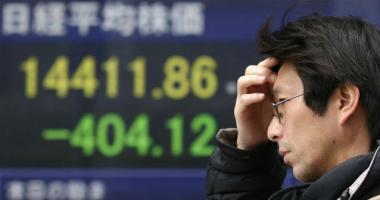 The tools used to predict the Forex market fluctuations, include a variety of economic models, technical indicators, decisions taken by the central banks, fluctuations in oil prices, and others. But trader should also take into account the impact of global cataclysms, ranging from natural disasters to wars and economic crises.
The tools used to predict the Forex market fluctuations, include a variety of economic models, technical indicators, decisions taken by the central banks, fluctuations in oil prices, and others. But trader should also take into account the impact of global cataclysms, ranging from natural disasters to wars and economic crises.
Disasters, in fact, could have a significant impact on exchange rates and it often turns out to be much stronger than, say, the central bank's decision to raise base rates. Major disasters lead to factors, which, in turn, threaten the national economics in general, and the outflow of foreign investments for long periods of time in particular.
Economic or political decisions can be reversed, but natural disasters do not usually fall under the control of the state, it can not be easily eliminated. As a result of the disaster, it is becoming more difficult to predict a behavior of currencies, although the disasters at the macro level, as a rule, lead to a devaluation of the national currency in the medium and long term.
Wars also act as a two-edged sword. On the one hand, they have a significant impact on the economies of the countries involved, as shown by the example of Afghanistan, Iraq or Syria, whose economics are largely affected by the armed conflicts. On the other hand, conflict can have a significant impact on the economy of the invading countries and increase the share of their market power.
And last but not least are the economic downturns such as the Great Depression and the recession that began in 2008. These are strong examples of artificially controlled disasters with serious consequences for the economy and exchange rates. An interesting point in relation to economic downturns is that currencies depreciate in the whole world.
However, currency pairs do not follow a certain pattern. For example, during the recession, the EURUSD may increase or decrease regardless of how devalued is the US dollar or the Euro. Therefore, during an economic downturn, it is difficult to predict the evolution of one economy to another.







